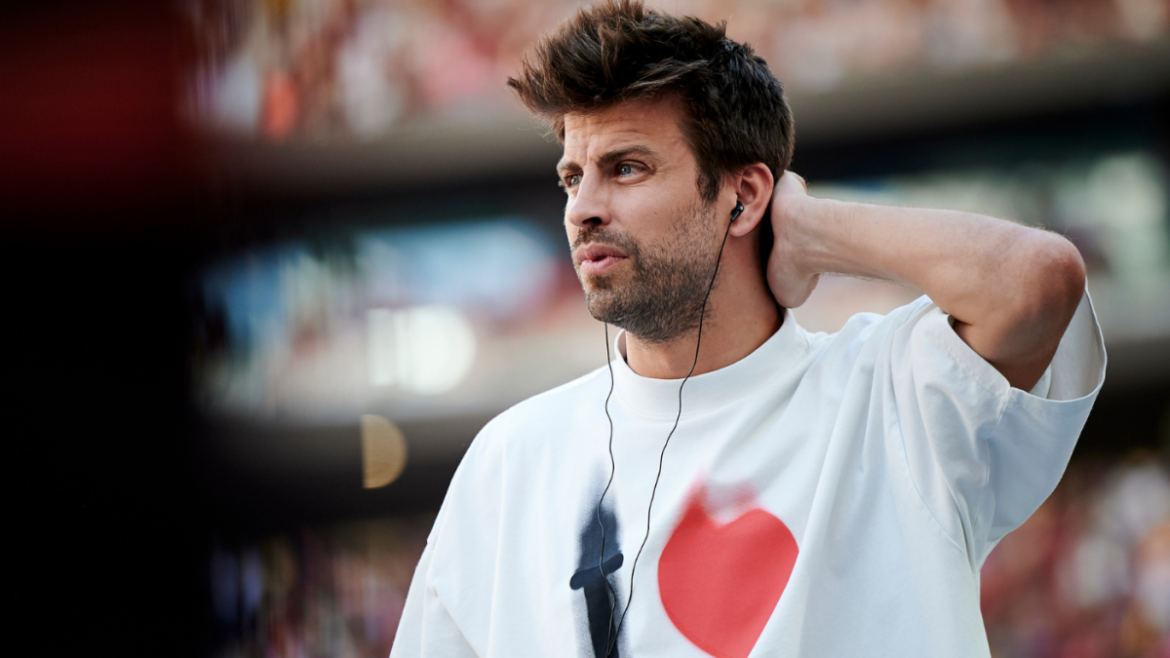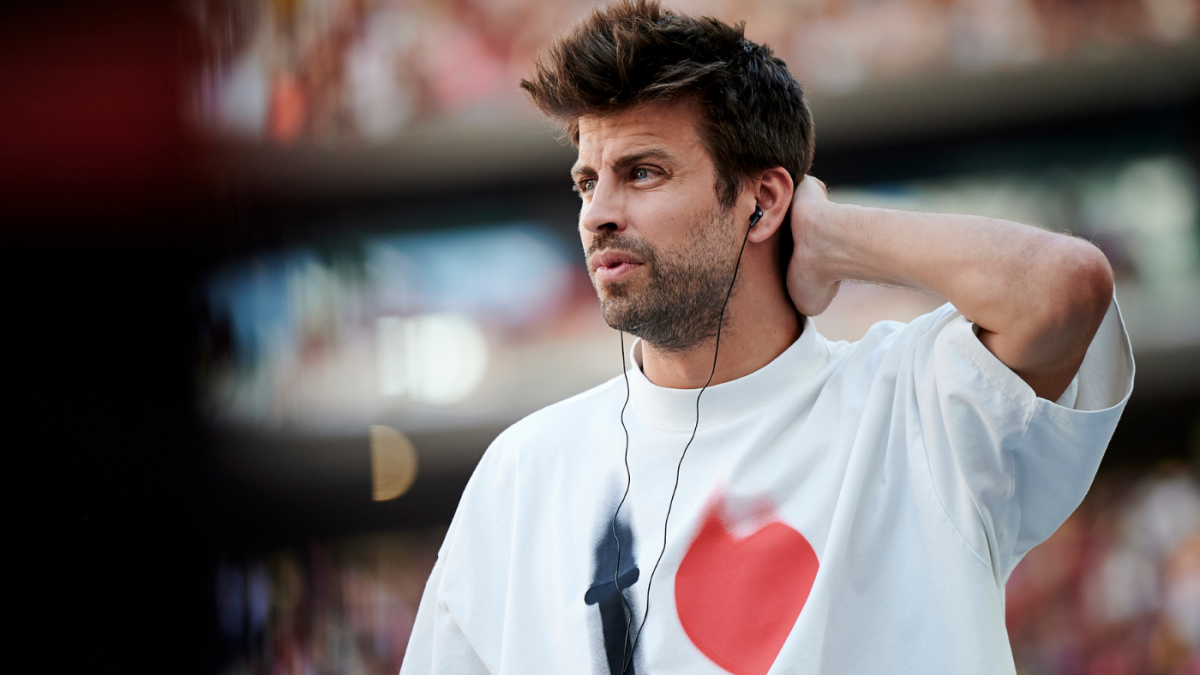Gerard Piqué’s Kings League: A Bold Reimagination of Soccer’s Future with U.S. Expansion on the Horizon
Gerard Piqué, once a stalwart defender for FC Barcelona and the Spanish national team, has embarked on an ambitious venture that could redefine soccer’s landscape globally. The Kings League, a seven-a-side football competition he founded in 2022, is quickly evolving from a localized Spanish novelty into an innovative sports entertainment franchise with international ambitions—specifically targeting the United States by 2026. This report examines the origins, distinctive features, growth trajectory, and strategic expansion plans of the Kings League, shedding light on why Piqué’s initiative is captivating fans and investors alike.
—
Origins and Unique Format: Reinventing Soccer for a New Generation
The Kings League debuted in Spain as a radical departure from traditional 11-a-side football, embracing seven-a-side matches held in an indoor setting that emphasizes speed, skill, and continuous action. Unlike conventional leagues, the Kings League integrates innovative rules designed to boost excitement and engagement such as eliminating draws and promoting attacking play. This streamlined, fast-paced format aligns well with the consumption habits of younger audiences, particularly Gen Z, whose attention gravitates toward dynamic, entertaining content.
Crucially, the league leverages the involvement of digital media personalities and former football stars, creating a hybrid entertainment-sport experience. Teams are often owned by popular streamers or ex-professional players, blending competitive sports with showmanship. This model extends beyond the pitch, combining live broadcasts on platforms like Twitch with an emphasis on fan interaction and real-time engagement. The league’s integration of technology and social media resonates naturally with digital-native viewers, positioning it as a fresh alternative to more traditional soccer formats.
—
Rapid Domestic and International Growth
Since its inception in late 2022, the Kings League’s growth has been meteoric. Originating from Spain, where it quickly captured a dedicated fan base, the league’s format has been exported to other football-rich nations including Italy, Germany, France, and Brazil. Notably, it launched a Mexico-based league tailored to audiences across the Americas, signaling its readiness for truly global penetration.
This growth is underscored by substantial financial backing. Kosmos, the sports investment group co-founded by Piqué, recently secured a €60 million funding round aimed at scaling the league internationally. This infusion supports critical initiatives such as launching broadcast operations in major languages, developing leagues in key regions, and enhancing production quality to rival established sports competitions.
Another element of the expansion mix includes partnerships with regional sports authorities and investors like Saudi Arabia’s Public Investment Fund, which plans to co-develop a Middle East and North Africa (MENA) league. These moves illustrate the Kings League’s strategic approach: build localized leagues with regional influence yet connected under a cohesive global brand.
—
The U.S. Market: A Strategic Priority for 2026 Launch
Among the planned expansions, the United States emerges as a marquee target. Piqué and the league’s executive team view the American market as ripe for innovation in soccer entertainment. With Major League Soccer (MLS) steadily growing but still working to fully captivate the national mainstream, the Kings League’s fast, social-media-friendly format offers a potentially disruptive alternative.
The expansion plan anticipates launching a U.S.-based league on the East Coast by 2026. This involves crafting a product customized to the American sporting context—leveraging English-language broadcasting, integrating with prominent streaming platforms, and emphasizing fan interactivity consistent with U.S. digital consumption trends. Early commentary from Piqué and Kings League CEO Djamel Agaoua highlights a vision where the league not only complements existing soccer infrastructure but reinvents how younger fans relate to the sport.
The focus will likely be on capturing urban youth and digitally native fans who might be less engaged by traditional soccer broadcasts but attracted to immersive, fast-action competition. Given the involvement of prominent digital streamers and influencer owners, the league’s model also taps into an existing fanbase eager for participatory sports entertainment.
—
Innovation in Rules and Presentation: Challenging Traditionalists
One of the most compelling aspects of the Kings League is its willingness to challenge norms—not only by reducing the number of players but through carefully designed rule tweaks. For example, matches in the Kings League do not permit draws, pushing every game toward a decisive result and elevating suspense. This ‘no-tie’ rule fosters risk-taking and attacking mentality, feeding the entertainment value.
Beyond gameplay, the league experiments with presentation formats, including live commentary from streamers and interactive features where fans can influence certain match decisions. This convergence of esports-style engagement with real-world sports represents a cutting-edge hybrid model.
The unorthodox approach has sparked mixed reactions. Traditional soccer purists question whether such innovations dilute the sport’s integrity. However, the league argues that these adaptations are essential to attract younger demographics who seek immediacy and engagement often missing in protracted, low-scoring soccer matches.
—
Financial and Cultural Implications: A New Sports Franchise Model
The Kings League is not merely a sports competition; it operates as a next-generation media franchise. This is reflected in its substantial venture capital backing, multi-regional presence, and cross-sector partnerships.
The €60 million investment secured recently serves multiple purposes: bolstering production capabilities, talent acquisition, expanding digital infrastructure, and launching new leagues internationally. This underscores investor confidence in the league’s long-term commercial viability and growth potential.
Additionally, the league’s collaboration with influential streamers and athletes creates a diversified content portfolio that extends beyond the pitch into digital culture. This blend enhances sponsorship opportunities, multiplatform advertising, and fan engagement in ways traditional leagues struggle to match.
—
Conclusion: Kings League’s Ambition to Redefine Soccer’s Global Narrative
Gerard Piqué’s Kings League represents a bold gambit to recast soccer for a fragmented, digitally oriented world. By distilling the game into a thrilling seven-a-side format, incorporating interactive media elements, and building a global expansion roadmap with strong capital support, the Kings League seeks to forge a new path for soccer fandom.
The plan to launch in the United States by 2026 is particularly significant. If successful, it could disrupt existing soccer ecosystems and inspire further innovations globally. As traditional sports face challenges engaging younger audiences, the Kings League’s hybrid sports-entertainment model offers a provocative template blending sport, show, and digital culture.
Whether the Kings League will evolve into a mass-market phenomenon or remain a niche curiosity, its rapid ascent and strategic vision underscore Gerard Piqué’s enduring impact on the beautiful game—this time off the pitch and into the digital future of sports entertainment.





